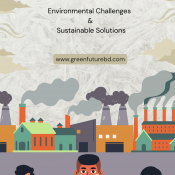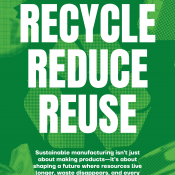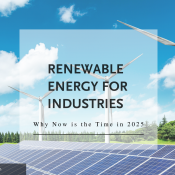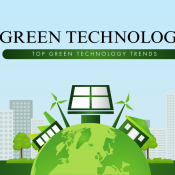Water Reuse in Industry: Save Water, Save Costs

In the face of escalating global water scarcity, climate change, and increasing operational costs, industries are under immense pressure to adopt sustainable practices. One powerful yet underutilized solution is industrial water reuse. This innovative approach not only conserves precious water resources but also delivers significant cost savings and regulatory compliance benefits.
In this blog, we will explore how water reuse works in industrial settings, its environmental and economic benefits, available technologies, and why adopting these systems today is not just smart—it’s essential. If you’re looking for expert environmental consulting services to implement industrial water reuse solutions, visit greenfuturebd.com.
Understanding Water Reuse in Industry
Water reuse, also known as water recycling or reclamation, refers to the process of treating wastewater or used water so it can be used again, either for the same process or for other industrial purposes. Rather than discharging treated water into the environment, companies treat and reuse it, minimizing both freshwater intake and effluent discharge.
Types of Water Reuse in Industries
- Internal Reuse (Closed-Loop Systems)
Treated wastewater is recycled within the same facility for similar or different processes. For instance, cooling water in power plants is often recirculated after treatment. - External Reuse
Industries may treat wastewater and supply it to other sectors, such as agriculture, construction, or neighboring factories. - Indirect Potable Reuse (IPR)
While rare in industries, some facilities clean wastewater to near-potable standards, which can be reused in utility or even production lines.
To implement a successful reuse program, it is crucial to conduct an Environmental Impact Assessment (EIA) and get guidance from eco consultants like those at greenfuturebd.com.
Why Industrial Water Reuse Matters
1. Water Scarcity is a Growing Concern
Global freshwater resources are under strain. According to the United Nations, nearly two-thirds of the global population could face water shortages by 2025. Industries, especially in water-stressed regions, need to act responsibly to minimize freshwater withdrawal and secure long-term operations.
2. High Water Consumption in Industries
Sectors like textiles, paper, steel, food processing, and chemicals are among the highest industrial water users. For instance, the textile industry in Bangladesh consumes over 1,500 billion liters of water annually. Adopting water reuse strategies in such sectors can drastically reduce demand.
3. Regulatory Pressures and Environmental Compliance
Governments worldwide are tightening wastewater discharge norms. Reusing treated water helps industries comply with these standards, avoiding fines and improving public image.
For tailored environmental management plans and water reuse design, partner with environmental experts at greenfuturebd.com.
Benefits of Water Reuse in Industry
✅ Cost Savings
- Reduced freshwater intake costs: Lower utility bills and sourcing costs.
- Lower wastewater treatment and disposal costs: Less volume to treat/discharge.
- Energy savings: In some cases, warm reused water reduces energy needs in heating processes.
✅ Increased Operational Efficiency
Recycling water stabilizes the supply, improving process reliability and reducing production downtime due to water scarcity.
✅ Environmental Sustainability
- Reduced impact on local water bodies and aquifers
- Minimized discharge of pollutants
- Improved corporate social responsibility (CSR) image
✅ Improved Resilience
Climate variability and droughts can halt operations. Water reuse ensures business continuity even during water shortages.
Technologies Used in Industrial Water Reuse
Several modern technologies are available for water recycling in industrial settings. The right choice depends on water quality, industry type, and intended reuse.
1. Filtration Systems
Basic treatment includes sand filters, activated carbon filters, and cartridge filters to remove suspended solids and odors.
2. Membrane Technologies
- Ultrafiltration (UF) and Reverse Osmosis (RO) are widely used for high-level purification.
- These are ideal for zero-liquid discharge (ZLD) systems and high-purity applications.
3. Biological Treatment
- Technologies like Membrane Bioreactor (MBR) or Sequencing Batch Reactor (SBR) combine biological and physical treatment to achieve high effluent quality.
4. Advanced Oxidation Processes (AOPs)
Used for the removal of organic micro pollutants and for disinfection.
5. Chemical Treatment
Coagulation, flocculation, and neutralization help prepare wastewater for further treatment or reuse.
For process design, layout, and implementation, consult greenfuturebd.com for customized ETP/STP solutions.
Case Studies: Water Reuse Success Stories
1. Textile Industry in Bangladesh
Many dyeing and finishing units have started implementing Effluent Treatment Plants (ETPs) and reusing treated water for boiler feed, floor washing, and even dye baths. One factory reported saving over 20 million liters of water annually, translating to significant financial savings.
2. Food & Beverage Industry
A major beverage manufacturer introduced a closed-loop water recycling system, reducing freshwater intake by 45%. Treated water is now used for bottle washing and cooling.
3. Power Plants
Thermal power plants utilize cooling towers with recycled water, significantly cutting down on their freshwater dependency and discharge.
Challenges in Implementing Water Reuse
While beneficial, there are some challenges industries may face in initiating water reuse projects:
- High initial investment for treatment plants
- Maintenance and operational complexity
- Regulatory approvals and monitoring
- Worker perception of using recycled water
However, with the right guidance and project planning from firms like greenfuturebd.com, these obstacles can be overcome.
Steps to Implement a Water Reuse Program
- Water Audit
Assess where and how water is used, wasted, and how much can be reused. - Feasibility Study
Determine the technical and economic viability of water recycling. - Process Design
Develop system design, flow diagrams, and layout with expert help. - Installation and Commissioning
Set up infrastructure with environmental approval and compliance. - Monitoring and Maintenance
Implement routine checks, water quality monitoring, and staff training.
greenfuturebd.com provides end-to-end support, from feasibility to system commissioning.
Government Incentives and Legal Frameworks
Many governments now offer:
- Tax rebates on water-saving equipment
- Grants or subsidies for ETP and STP installations
- Fast-track approvals for sustainable infrastructure
In Bangladesh, the Department of Environment (DoE) requires all industrial units to treat and, wherever possible, reuse wastewater. Ignoring these guidelines can result in hefty penalties or even plant closures.
For regulatory compliance and legal documentation, consider working with experienced consultants like greenfuturebd.com.
Published on: Thursday, 7 August 2025, 12:44 pm ▪ Last update: Thursday, 7 August 2025, 01:10 pm ▪ Total View of this Page: 534







